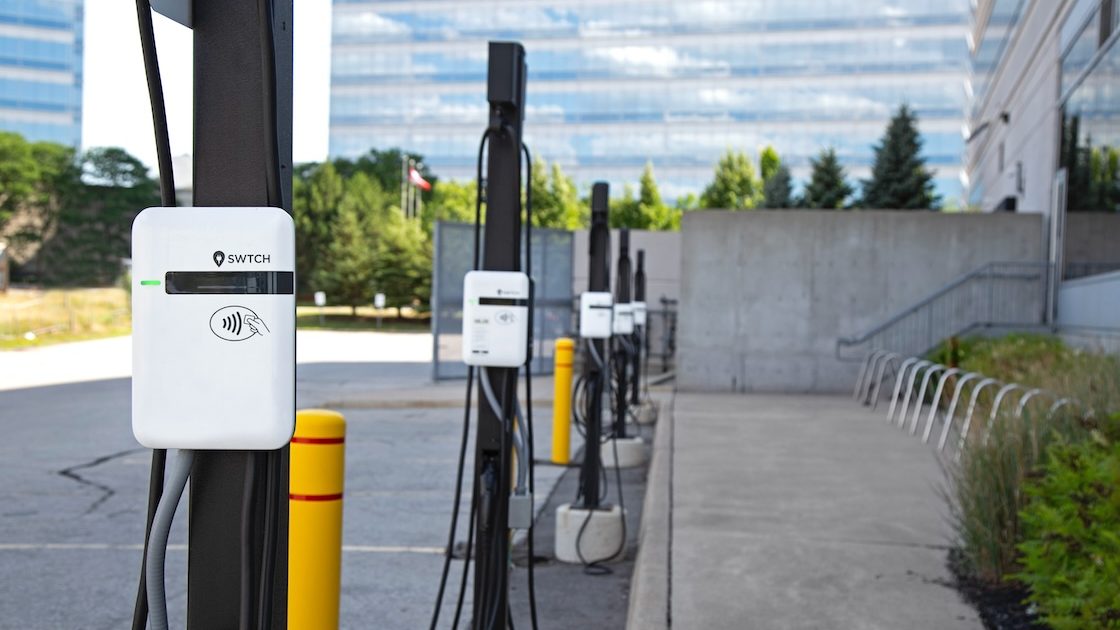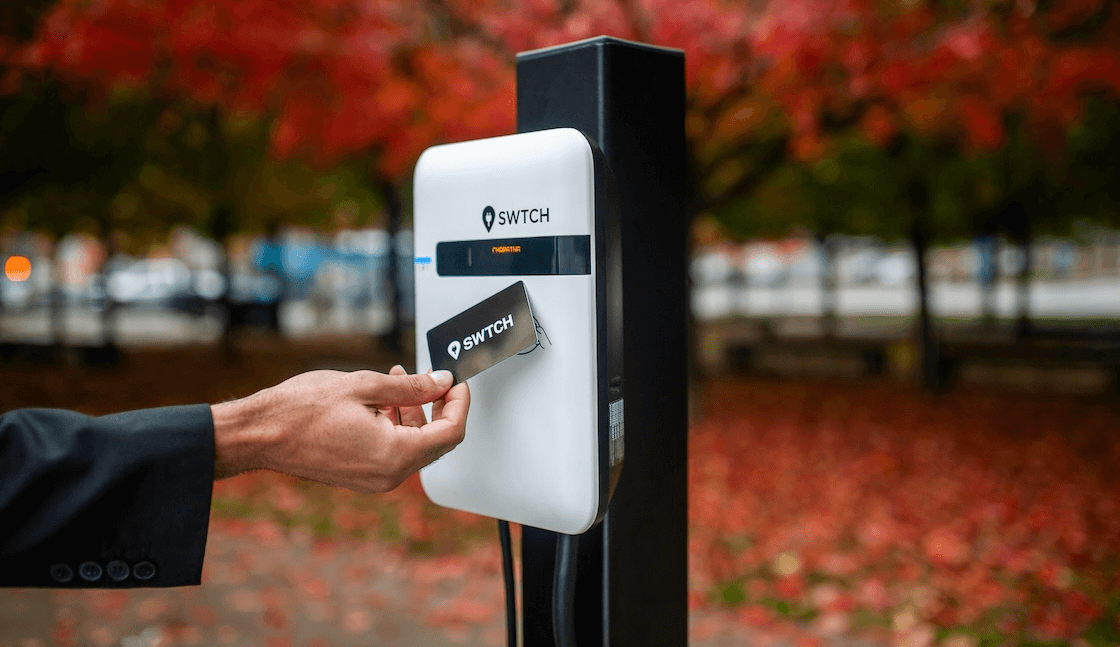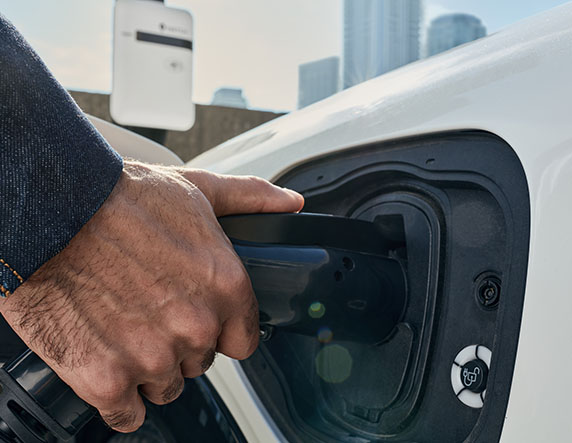EV Charging Software: Why it’s important, and 5 features you need
Good EV charging isn’t just about getting the right hardware—you need quality software running behind the scenes to ensure your assets are being managed and are functioning properly.
EV charging software solutions integrate with the physical chargers themselves and connect back to a central management platform to streamline everything from managing access to adjusting pricing to viewing energy consumption and much more.
There are many solutions on the market, but not all are built to drive the most value for you as an owner or operator. Taking care to find the right mix of features from the get-go can help you make the most of your investment in charging and set yourself up for expansion down the road.
Here are some of the most important features to look for when selecting your software.
Intelligent load management functionality
Load management is the ability to safely share electricity across multiple chargers serving multiple vehicles. The effect of employing a load management solution is significant: you don’t need to accommodate full EV charging capacity for all parking spaces, at all times — so you can install multiple EV chargers on the same circuit or panel to avoid a complete overhaul of your building’s electrical infrastructure.
Advanced load management software can take this a step further, helping to dynamically share the available load between multiple chargers in response to a full building’s electrical needs. This type of load management uses electrical monitoring devices to actively measure the load on existing electrical panels at any given time.
If your building experiences a spike in electrical demand (like what usually happens on weekdays around after work), the monitoring system detects this change and can temporarily throttle back the EV charging, leaving room for the other building appliances to consume the remaining electrical capacity.
In essence, the system will shift the EV charging to a period of less demand. And by the time EV owners need their cars in the morning, their vehicles will still be fully charged and ready to go.

A great software solution gives you control over your fee structures and access policies
Defining the billing setup for charging sessions, as well as setting policies over who has access to chargers, are key considerations when maintaining this type of amenity in your buildings. The EV charging software you select must grant you proper control over both.
For access, who would you like to be able to access your chargers? Would you like chargers to be assigned to deeded spots, or can multiple people share them? Good software makes it possible to restrict access in any way you’d like to ensure your system is used how you expect it to be.
For billing, if you’re planning to charge certain types (or all) of drivers that use your chargers, you’ll need fee structures that accommodate your property’s unique criteria. What does your parking system look like — are there deeded spots, or is parking open? Should all drivers pay for their energy usage (or time spent at the charger) directly?
A comprehensive software system can track drivers’ usage directly, take payments, and remit those payments back to the property owner/operator at regular intervals. As the property owner, you shouldn’t have to manage this process directly — you should automatically get payments sent to your bank account as the EV charging software & EV driver app do the heavy lifting.
There are also other questions of customization. Do you want to charge everyone the same rate, or charge residents one rate and guests another? Would your property benefit from a loitering fee to help encourage drivers to move their car once their vehicle is done charging? Would you like to facilitate reservations or charge everyone a flat fee to help offset charger installation costs?
Different property owners have different needs for pricing and billing the EV charging they offer. Don’t accept a software solution that doesn’t allow you to tailor your chargers to your specific needs.

Quality EV charging software builds a scalable network for you
If all you’re installing is a single machine that needs to charge a single vehicle for one driver, you may not have any need for a networked software solution. But as soon as you have multiple chargers, multiple drivers, or are considering growing the total amount of chargers over time, you’ll need to contend with how these machines work together and integrate into your building.
Quality EV charging software should provide you with the tools to link your machines together for ease of use, oversight, and maintenance — even if you’ve installed different brands or types of machines. And the best networks make it easy for you to add additional chargers over time as your charging needs change!
You should also always check to ensure that the devices and software you’re using are open systems — that is, you can change your software or hardware providers as suits you best, without operability concerns. The Open Charge Alliance is a global organization that certifies companies committed to the Open Charge Point Protocol — check to see if your potential provider is a member!
Read: How The Lofts at Beacon future-proofed their building & business with a scalable EV charging system
The best EV charging software gives you detailed reporting
As noted in the point above, quality EV charging software gives you access to a networked charging solution. One of the elements that usually comes with networked chargers is the ability to view comprehensive data on your chargers all at once in real time. This is a huge advantage for companies that may need to report on ESG or utility usage, track EV demand over time, or monitor financial impact.
A strong software system not only provides this data but makes it easy to manage and share, filter data by location and charger and other variables, and monitor everything in real time, if needed.
This is especially helpful for transaction records, revenue reports, and energy consumption reports that you may need to produce throughout the year. Factor the ease of access to this kind of information into your evaluation process, and consider whether less costly offerings are truly worth the savings if they can’t deliver on this kind of functionality.

The best EV charging software empowers EV drivers to charge with ease
Good EV charging software doesn’t only impact the folks who own the chargers. It also helps ensure that the experience of using those chargers is painless for the drivers who rely on them.
For drivers, allowing for flexibility and ease of access tends to be key. For instance, giving drivers the ability to use an RFID card and an app to initialize and pay for a charging session can help different folks charge up according to their preferences.
Being able to provide additional information to drivers is also helpful, so prioritize a software solution that delivers on this element as well. For instance, a charging app should be able to deliver notifications to the driver when their car is charged up, and it should also include easy access to support in case of an unexpected issue.
It’s all about putting the right tools in your drivers’ hands. The less work they have to do to charge or to get help when a charger isn’t working, the happier they will be.
Are you on the hunt for great EV charging software?
Contact SWTCH for help in finding the best option for you.






